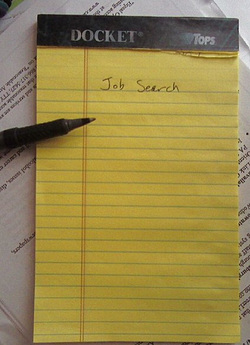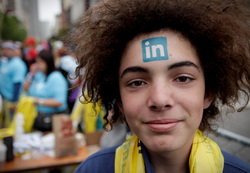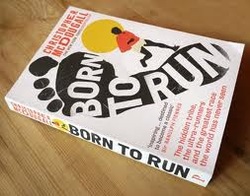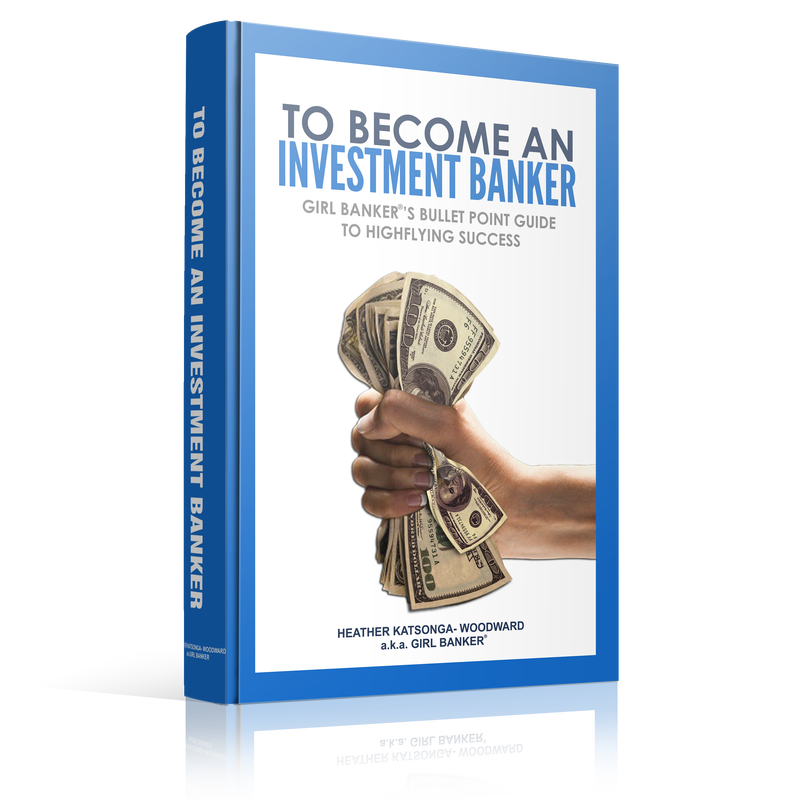 by Girl Banker Reading Amazon kindle books on Windows XP, Vista and 7 is easy peasy. Log into your Amazon account and download the software: Amazon.com or Amazon.co.uk. This is essentially the "app" for Windows. When you buy kindle books off the Amazon website, you can have them wirelessly delivered to this or any other device that you own. If you download a book to one device it will be in the Archives on the other devices so you can simply reload it to an alternative gadget at no additional cost. Happy days. This is how you can read kindle books on iPhone, iPad or Mac.
3 Comments
 by Girl Banker You don't need to own a kindle tablet in order to read kindle books! Here is how you can read kindle books on any apple device: 1. Go to the app store 2. Search "kindle" and you can download the kindle app 3. The app allows you to read any kindle books that you've bought on the Amazon store In the early days, you could buy the books directly through the app but as usual Apple got greedy and wanted a cut of book sales so nowadays you have to buy the books directly from the Amazon website. No worries, you can still do that using your phone. The best bit is that you can have the Amazon kindle app on multiple platforms. I have it on three iThings. When I open any book on one gadget or the other it knows the last point to which the book was opened on another device and asks if I want to go there. Neat, huh? When you buy kindle books off the Amazon website, you can have them wirelessly delivered to this or any other device that you own. If you download a book to one device it will be in the Archives on the other devices so you can simply reload it to an alternative gadget at no additional cost. Happy days. This is how you can read kindle books on Windows XP, Vista or 7.  by Girl Banker If you are trying to become an investment banker, there are two routes you should look at if you are still in university and three routes if you are already a couple or years or more into your career. 1. Use your university’s careers service. Investment banks may visit your university specifically to recruit the best scholars. If you are at a top-end university they may even have a unique recruitment program/process for your institution that you can use. Even if you graduated ages ago, call up your university to check if they have resources that might help you in your job search. I recently discovered that the university of Cambridge offers lifetime help and support to alumni, I had no idea. I am sure this is not unique to my university. 2. Apply directly via the bank’s website. Your university careers service won’t have knowledge on every single investment bank. It is definitely worth exploring the careers section of banks independently and applying more widely to increase your chances of becoming an investment banker. 3. Call up some headhunters If you have work experience that investment banks would find valuable above the entry level, you can use headhunters. If you're young and haven't started your career yet, this route is mostly closed to you. In a recession, headhunters' books will also be thin but the very best ones will still have access to new positions especially at the senior level. Call them up and get your resume/CV in front of them. Whichever method you use, network proactively. Get to know people connected to the industry and learn as much as you can from each.  by Girl Banker Listen to the iTunes podcast instead. These are the eight things that will get you a job in investment banking. I believe having seven out of these eight helped me get into Goldman Sachs as a newbie analyst. 1. Gain knowledge Read the news! At first you might feel like it’s a waste of time especially if you’re not interviewing yet but as time passes you’ll realize that some knowledge just sticks. Without a shadow of doubt, if you spend 20-30 minutes per day on financial press, your overall knowledge and feel for the industry will start to become well-rounded. 2. Come top of the Class or Course If you came top in any class or course - highlight it, it means you’re smart; smart = hard working (normally). In my second year in university, I came 5th in the Econometrics paper – you best believe that I brought that up interviews. Econometrics is hard and to come 5th out of about 150 people in a University of Cambridge class is the sort stuff interviewers are going to remember afterwards. 3. Be an Achiever - prizes, awards and scholarships Even if you’re not top of a class, any major prizes, awards and scholarships must be revealed when the opportunity arises. This sort of stuff shows that you are an achiever, bankers love to work with and be associated with high performers. 4. Be a Team Captain If you are captain of any sporting teams - don't forget to bring it up; out of any other credentials you might have, this shows you are popular and hence personable the most. Especially at the secondary school level, to be awarded the role of captain you need to be liked by the teacher and the people you will be in charge of.  5. High/school or College Start-up If you have ever started a business, especially if it did well - mention it; starting a business or anything else shows that you have initiative and superior time-management skills. 6. Be the Linguist If you can speak several useful languages mention it; it’s impressive and it means you can be presented to a wide variety of clients. One time a VP of mine went to talk to someone and when he came back it wasn't the project we were working on at the forefront of his mind, he said, “Tiana is amazing, I was at her desk for 30 minutes and in that time four different people came to her desk with problems and she spoke to all of them in different languages”. She was fluent in Spanish, French, Portuguese and English. 7. Network and Get Contacts Look for events related to investment banking. If there aren’t any or enough at your own university make friends with people at nearby universities that can invite you to their banking events. 8. Get some work experience I have left this until last because many people applying to banking for the first time frequently do not have any work experience; sometimes they feel as though their work experience isn’t relevant. Mention whatever experience you have anyway even if it's a newspaper-round, there are likely some transferable skills e.g. a newspaper-round requires you to get up earlier and be more organised than your friends. The most crucial work experience is an internship the year before you graduate. Why then? Because if you impress the bank they will offer you a job that starts the moment you graduate. This means you can go back to your last year of university with peace of mind. You’ll be secure in the knowledge that there’s a job waiting for you at the end and you can just focus on your studies. Hope this helps! Peace and chicken grease, Heather  by Girl Banker Listen to the iTunes podcast instead. This post is related to, The most effective 10-step strategy for cold calling an investment banker. However, this post is concerned only with the actual phone call not the research and data gathering. 1. Sound upbeat A monotonous voice will bore the person you are calling and they'll want to get you off the phone as soon as possible. 2. Work on your high-pitched voice If you have a high-pitched voice practice talking at a lower tone. High-pitched voices are generally perceived to be irritating. 3. Before you hit the dial button, practice You can either do this yourself using the voice recorder on your phone or with a friend/family/professional coach. Video isn't necessary because only your voice matters in this case. 4. State your name. 5. State where you got the person's details if possible If you can say how you came to know of the person, that is very useful for building rapport. I found your details on LinkedIn is not a good line, you'll sound like a stalker. However, if you found details on the company's website, say so.  6. Mention a mutual contact, it will help to keep them on the phone longer Check your LinkedIn profile to see if you do have a mutual connection. If so, call the person you know and ask them for permission to mention your name in the phone call. 7. State what you need help with. If you have done decent research on the person you might have found out interesting things about them, think about how you can spin their experiences to make yourself sound like a knowledgeable person on their industry and their job function and why you would be a good addition to the team or bank. 8. Get a promise. Before you get off that phone try to get some kind of a promise e.g. permission to call again, a promise that they will forward your CV to someone and, highly unlikely - but an agreement to meet or be interviewed. If you're not getting anywhere say something like: you sound very busy, I am so sorry to have called you at an inconvenient time, can I call you back at a better time? If they say, yes, ask when. Get the person's email if you do not already have it! 9. Follow up. If you failed to get anywhere on the first call, see what a second call might unveil. A third call is also okay but if that doesn't prove successful, that's where you need to stop. People in banking know each other and if you're branded a stalker it's not going to bode well for your job hunt. Happy job hunting.  by Girl Banker Listen to the iTunes podcast instead. If you haven't reached the penultimate year of university, you don't really need the information below. Get a copy of To Become an Investment Banker and follow the path that has been outlined in there. If you have graduated, are near graduation or indeed, well into another career, you might need to search more aggressively to get your foot in the door. 1. Decide which investment banks to target If you don't know which banks you want to focus on, have a look at the top 50 banks. GirlBanker.com/Banks has a lot of links that take you directly to the recruitment pages of the top 50 investment banks. The biggest banks provide a lot of information so any basic queries you might have will be answered on their website. 2. LinkedIn Lots of people voluntarily put their resumes/CVs onto LinkedIn. Before LinkedIn was publicly listed in 2011, you could get all manner of information; but because they now need to make money for their shareholders, some information is withheld from basic account users. They only show enough to entice you to upgrade to fee-paying status. If you have some generic questions about jobs at the company search for: "Investment Bank" + "Human Resources" "Investment Bank" + "Human Capital Management" "Investment Bank" + "Recruitment" Terms like investment banking division (IBD), or capital markets will not get you very far. Any big bank will have a huge IBD or capital markets department so you need to be a lot more specific than this. You should have a pretty clear idea of what teams you are interested in. Examples of good searches for team members: "Investment Bank" + "FX Sales" "Investment Bank" + "Derivative Sales" "Investment Bank" + "Credit Trading" "Investment Bank" + "TMT" "Investment Bank" + "Leveraged Finance" "Investment Bank" + "Healthcare" Normally, this only yields a name but not an email address. That said, read through the person's details and you might find their email included in their job summary. This is especially true for people that are actively trying to fill a role at the firm.  What information can you get on LinkedIn?
What do you do if the name is partly hidden? If you are completely unconnected to the industry you might find LinkedIn a little useless. Here are two workarounds: a) Over time, as you attend networking events make sure you add people you meet to your LinkedIn profile. I only joined LinkedIn in 2011 for the sole reason of building up a network and data access. I actively added people I know to my network and that allows me to see more information. b) Take whatever information you find to Google.  3. Google You can repeat the above searches on Google. In addition, a) Search for phone numbers: you're unlikely to get a direct number so just look for a reception number; b) Search for emails: it's easy if the person has a basic name. Most investment bank emails follow the format [email protected]. Some investment banks have abbreviated emails i.e. @gs.com not @goldmansachs.com. Google what you think the email might be then email your contact. If the email you deduce is correct, it won't bounce back. c) Search the web for any information available on the person: to get a better picture of who the person is. It gives you more to talk about when you call/write. What do you do once you have a name, department and some basic details? 4. Call or write You can call via reception. Seriously, if you call the reception at most banks and ask to be connected to "So and So" they will put you straight through! I would say email is better than a physical letter in this case. Most people in an investment bank are extremely busy. Helping someone get a job doesn't yield anything for them (usually); any mail received will quickly be forgotten about and it will not be actioned. A letter followed by an email or a phone call might be more memorable. If you have a very creative idea in terms of how to wow them with a physical letter - do it! 
by Girl Banker
Sitting on your butt the whole day. I thought to write about this after reading Born to Run by Christopher McDougall. I was the type of girl who found every excuse not to go to PE (physical education) in high school. By the time I got to A-level, I had convinced the school's director of studies that as I was reading four A-levels rather than the standard three, I should be permitted to attend PE only when my schedule allowed. He agreed. I was never seen on the sports field again. I really underrated the value of moving about. That said, even when I studied, I wasn't sat still for more than an hour or two at a time. After that, I would go to find my friends and we would hang out and have a laugh. I was slim and sexy; 'why would you want to run and sweat when you're body's already got it going on?', I thought. I only started to appreciate the need for exercise when I came to cold wet England. For the first time, the weather was so poor that going out for a walk did not appeal in any way, shape or form. And the food? God knows what they put in it because whereas I ate to my heart's content and didn't gain weight in Malawi, just looking at English food added an inch to my waist. Then came the banking years. Now it got really bad. I was not only gaining weight but my back was having aches and pains that it had hitherto not encountered. Sitting at your desk is painful. By year five of banking, I couldn't sit at my desk for more than twenty minutes without having to stand up to give my back a rest. Yes, standing was resting and sitting culminated in a sore back. When I was deciding to go into banking, I didn't pay any consideration to the health impacts at all. 
Don't want to go into banking anymore?
Hold on, this problem is not unique to banking. All sedentary jobs will have the same impact on you. Lucky are those that get to move about a lot as part of their occupation: doctors especially. People were designed to run. As hunter-gatherers all men and women were running all the time. "Human bodies are designed for performance and the human brain for efficiency" (Born to Run). The brain is always searching for ways to conserve energy and in our days as hunter-gatherers it was mostly correct: if you saw an opportunity to sit down you took it because there was no telling when you would get to sit down again. However, now, whilst your body might say run, you brain still says sit, conserve your energy for when you need to run. The result? The brain seems to be winning and we're literally sitting (and eating) ourselves to death. Half of today's diseases - obesity, high BP, various cancers - were unheard of in the hunter-gatherer days. As you devise your strategy for getting into banking devise your physical regimen too. Change your diet, perhaps. Cut out processed foods and make a dedicated commitment to visiting a gym: your health and longevity depend on it. How can you be more active at your desk? 1. Stand when you are on the phone 2. Keep weights at your desk and use them when you're on the phone 3. Sit on a balancing ball, it forces you to workout your core 4. Walk up the stairs or the escalator 5. Stretch whenever you feel stiff. I did this a lot. 6. Walk to people instead of emailing them. You might save time too. It' crazy how I used to email people who were sat two rows away just because I couldn't be bothered to walk over. 7. Request a stand-up desk or an ergonomic chair. Stand up desks are very expensive but I have seen people be allowed them due to unique circumstances. The desk has a button that allows you to lift the whole thing up, computer and all so you can work on two feet. Stand up desk are the future, I truly think they'll will help with health issues. 8. Track your weight using the Fat Creep™ app on iPhone or Android to ensure your weight stays within a desirable range. It's designed by yours truly.
Read my brief review of Born to Run here.
 by Girl Banker® Listen to the iTunes podcast instead. It is true that investment banks recruit a disproportionate number of people from the very top universities. Many people believe this is totally unfair, however, consider why it might make sense: Do you agree? All businesses want to hire the smartest people they can. No one can argue with this. If you had a business, you would obviously want it to succeed and it makes sense that hiring top performers will increase the likelihood of achieving such success. Do you agree? The entry requirements for top performing universities are extremely high, on average. In addition to having supersonic grades, the best universities want to see a dashing set of extracurricular activities especially in sport, drama or music. I say, on average, because we all know that some wealthy people get in regardless of mediocre grades due to their connections and "donations". That said, their hefty donations go a long way towards improving labs and other resources. Do you agree? Most people have to work very hard to get top grades. Some people seem to do no work at all, enter an exam room and ace it. Good for them. The vast majority of us aren't so lucky. I am going to use myself as an example here: I worked my African butt off to get into Cambridge. I had no reason to expect to get in but all that I knew is that I really wanted to go there. It wasn't that I did a stupid number of hours of work, I just structured my time extremely well. Let me explain. I went to a Malawian boarding school at the age of 11 and for the next 6 years, every single term, I wrote a study timetable and I more or less stuck to it. At times I even missed the weekend's entertainment to catch up on things I didn't manage to cover. By the time I reached GCSE, I was going through the entire curriculum for every subject every two weeks. In the 6 years that I was in high school my grades went from strength to strength. I improved every single year just because I had this blazing desire to go to the best university in the UK. Did anyone make fun of me? Of course they did but with me, you always get as good as you give so it wasn't much of a problem. A friend of mine put it best when I was telling her about something I was working on, she said, "Heather I completely believe that you'll do what you are saying because when we were in high school and you said you wanted to go to Cambridge, we all thought you were mad!"  Does this then follow? People who work hard get top grades, people who get top grades get into top schools, people who get into top schools get the best paying jobs? It should but it doesn't necessarily. Some people can work as hard as they like but they simply have more obstacles to jump over - a lack of resources (e.g. a bad school, no room of your own to work in, no money for good books or private tutors) or they're surrounded by teachers (and parents) that don't believe in them. State secondary schools need to find a way to help people with obstacles achieve better grades. Yes, a disproportionate number of students in top universities come from private schools. And a disproportionate number of those are from wealthy households. The cornucopia of resources in fee-paying institutions means pupils have less of a challenge to achieve fantastic grades and as such they find it easier to get to the top. In conclusion, I didn't set out to discuss the need for a more egalitarian school system. My point is that any business, investment banks included, is justified in using the university system to help them sift through candidates. No matter what your background is, if you were born in a developed country your chances are probably way better than mine were coming from one of the 10 poorest countries in the world. I never thought about what I didn't have, ever, I only thought about what I wanted and I focused all my energy on that goal. I didn't care about looking uncool or geeky, all I knew is that even if I failed I wanted to have tried my very best. Try your best and you might surprise even yourself. by Girl Banker® Listen to the iTunes podcast instead. Having worked in both corporate finance and in the capital markets, I think the skill set needed is slightly different in each. That said, there are some universal requirements: 1. Learn quickly - no one is going to tolerate persistent mistakes; 2. Be personable - so that people enjoy working with you; 3. Have charisma - so that clients prefer you over your competitors. Let's look at the two divisions in turn:  CAPITAL MARKETS 1. Analytical + super assimilator of information Whether you're a trader or a salesperson, you need to take in a lot of information and process it to either relay to clients or to make a trade. A customer can call at anytime to ask random questions like, "What's 6-month LIBOR been doing in the last two weeks and where do you expect it to go now? Is 3-month LIBOR doing the same? Is that your bank's take or your personal opinion?" Trust me, there will be days when you get asked a question so random that you have to blag your way off the phone to find the answer!! 2. Multi-tasker If you like to work on something and finish it off completely before moving onto something else, you'll hate the capital markets. You are always working on several jobs at the same time and just as you start getting into the project at hand, you'll need to move onto a more urgent task. 3. Thick-skinned It's a stressful environment. People will swear and shout at you - so what? - dust yourself off and forget about it. If you're very emotional you'll struggle. Don't take things personally. It's entirely normal to have a shouting match one minute and be laughing with that same person five minutes later.  CORPORATE FINANCE 1. Analytical + highly structured Model building requires you to be decent with numbers and to think in a highly structured way. More often than not you will not be building a model from scratch but the better your understanding of financial statements, accounting rules and how the different line items relate to each other, the quicker you'll be able to sort out any modelling problems. 2. Diplomatic All corporate finance deals are based on a team unlike in the markets (sales & trading) where once you have learnt enough you often work on your own. You will, of course, want your contribution to be valued but if you are aggressive about it you will turn your peers off. With tact and diplomacy your individual contribution will shine through without putting others off. 3. Low sleep requirements The long hours you hear about in banking are not just rumours. You will work very long hours and what's more, you will not only get used to it but you'll start to think of it as "normal". A year into my role as an analyst at Goldman Sachs I got home around at 5:00 p.m. one day and I actually felt strange. I had become so accustomed to my long day that I thought, "What do people do with all this time?" I kid you not. Fun fact: did you know that the longest recorded period without sleep is a gobsmacking 33 years, endured by Thai Ngoc, a 64-year old Vietnamese man. Apparently, after an illness in the 1970s he lost his need for sleep!?! Jealous? Yes I am. I need 8 hours of shuteye to feel normal. I can get by on 7 but less than that on a regular basis and you don't want to be near me! Jokes aside, the hours are long and the less sleep you need, the easier life will be for you. |
Girl Banker®I created my investment banking blog in 2012 as soon as I resigned from i-banking & published my book, To Become An Investment Banker.
Initially published at girlbanker.com, all posts were later subsumed into my personal website under katsonga.com/GirlBanker. With 7 years of front office i-banking experience from Goldman Sachs and HSBC, in both classic IBD (corporate finance) and Derivatives (DCM / FICC), the aim of GirlBanker.com was to make it as straight-forward as possible to get into a top tier investment bank. I'm also a CFA survivor having passed all three levels on the first attempt within 18 months - the shortest time possible. Categories
All
Archives
August 2017
|
Heather Katsonga-Woodward, a massive personal finance fanatic.
** All views expressed are my own and not those of any employer, past or present. ** Please get professional advice before re-arranging your personal finances.









 RSS Feed
RSS Feed





